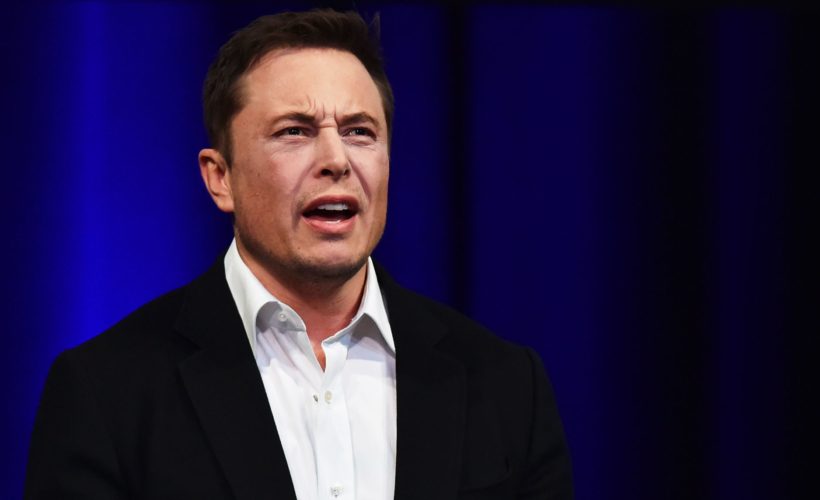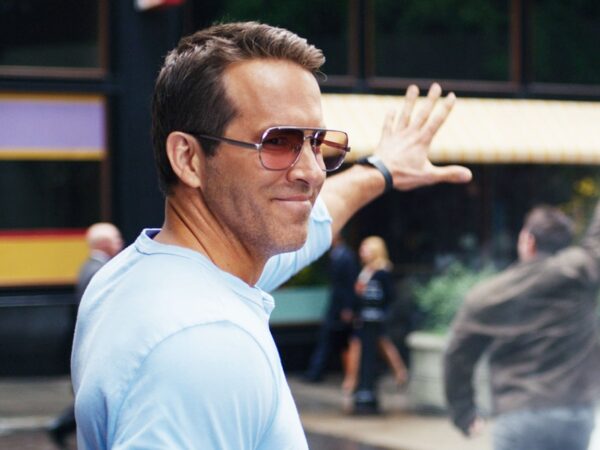The numbers, arranged on the paper like tea leaves in the fortune teller’s cup, heralded a sunny future. Production rates up. Market share impressive. Profitability in sight. Tesla had work left to do, but it was moving in the right direction, and fast enough to assuage investors wondering when the young automaker would reel in its spending and find its way into the black.
Then Elon Musk took charge of his own fate. In a public earnings call with investors and financial analysts Wednesday afternoon, the CEO attacked two analysts for asking what he called “bonehead” and “dry” questions, and refused to offer answers. By the morning, Tesla’s stock had dropped nearly 10 percent.
And so the question become unavoidable. Has Musk, with his inimitable élon, gone from asset to liability?
It’s a remarkable turn for a man who stands out, even in this age of Silicon Valley leader worship, for his inextricable association with his company. He has never been a conventional CEO, and that’s been more feature than bug over the past decade. He tweets about building cyborg dragons, jokes about bankruptcy and mixing Ambien with red wine, and appears on talk shows and Page 6. He has launched Big Fucking Rockets, promised traffic-obliterating mazes of tunnels, and conjured a hyperloop industry from nothing. He made electric cars really, really cool. After his legions of fans bought 50,000 Boring Company hats for $20 a piece, Musk moved on to $500 flamethrowers. He sold 20,000 in under a week.
No wonder: Musk is the entrepreneur who ignores conventional wisdom, who silences haters and doubters with acceleration records and cars rocketing around the solar system. He attacks the media and fights federal investigators. It’s all part of a hugely popular personal brand that can’t be separated from Tesla’s knack for surviving in an industry that kills just about all newcomers. Even when it delivers cars years behind schedule, when executives flee and scandals stack up, Musk’s fans remain zealous, and his investors indulgent. Indeed, in March, a large majority of Tesla shareholders approved a compensation package that could make Musk $55 billion if he delivers on extraordinary goals, and that effectively locks him in the job for the next decade. (Musk discussed the idea of leaving Tesla in 2013, but now says he’s there for the long haul.)
Now, though, Musk has mocked some of the people who are most vital to Tesla’s survival—the investors who have pushed it to valuation that surpasses Ford’s—and paid a price. Wednesday’s call went south when analyst Toni Sacconaghi of Sanford C. Bernstein asked about Tesla’s ability to reach a gross margin target of 25 percent on the Model 3, then about its projected capital requirements. “Excuse me,” Musk interrupted. “Next. Boring bonehead questions are not cool. Next?”
Then came Joseph Spak from RBC Capital Markets, who asked how many Model 3 reservation holders are actually buying the car. “Sorry. These questions are so dry. They’re killing me,” Musk said—after 10 seconds of silence. As Musk turned to take a long series of questions from a YouTube financial blogger (some of them pointed), the stock started dropping in after hours trading, ending up down close to 10 percent.
Tesla’s stock has always been volatile, subject to vertigo-inducing spikes and dives. On that serrated line, this drop doesn’t stand out for its size. What sets it apart is the trigger. Tesla’s quarterly numbers were quite solid. Perhaps truthful, detailed answers to Sacconaghi and Spak’s questions would have been unpleasant. But where the conventional CEO might dance around bad news, or hide it in a wooly nest of jargon and non-answers, Musk attacked. And he made himself look bad.
“Investor feedback to the call was shock that a CEO would be dismissive and the general sentiment was that the defensiveness spoke volumes,” Spak wrote in a note summarizing the call and financial results.
“There is incremental concern when, on an analyst financial quarterly call, the CEO doesn’t appear to want to talk about important financial metrics,” Sacconaghi, the other spurned analyst, said on Bloomberg Television. “The read-through is that potentially the CEO doesn’t care or isn’t focused about those financial metrics or ultimately the numbers don’t tell a good story. But either of those interpretations are not particularly comforting.”
It seems that while investors don’t mind Musk making wildly optimistic predictions or mocking competitors, they’re troubled by having their own valid, relevant financial questions derided during a finance-focused call. Now, they are not just concerned about Tesla’s financial health. Some, at least, are concerned about the man leading the company they jointly own.
The timing of this misbehavior is not good: The Model 3 is supposed to be the thing that takes Tesla from VC-funded darling to a standalone, profitable automaker. It has struggled to make the transition, burning egregious amounts of money and lagging badly on production goals in the nine months since it started building the $35,000 sedan in earnest. Musk says he doesn’t want to raise money again in 2018, but Tesla might have to.
The Silicon Valley automaker has always been a long term bet. Musk never promised profits before the Model 3 entered mass production. But now the car is here, the assembly line is in business, Musk promises the numbers with the dollar signs will go from red to black by the fall. If they don’t—and history has not been kind to Musk’s self-imposed deadlines—he’ll need his investors’ goodwill.
Musk’s decision to attack, rather than help, his financial questioners hardly spells doom. But it gives the tea leaves a good swirl—and the sunny forecast they once promised is looking a bit more like rain.
Tesla in Trouble
- Buying a Model 3? Don’t count on that $7,500 tax credit
- Tesla attacks the feds investigating its latest Autopilot death
- The worst thing about Tesla’s latest recall? Crummy timing
Source:WIRED











